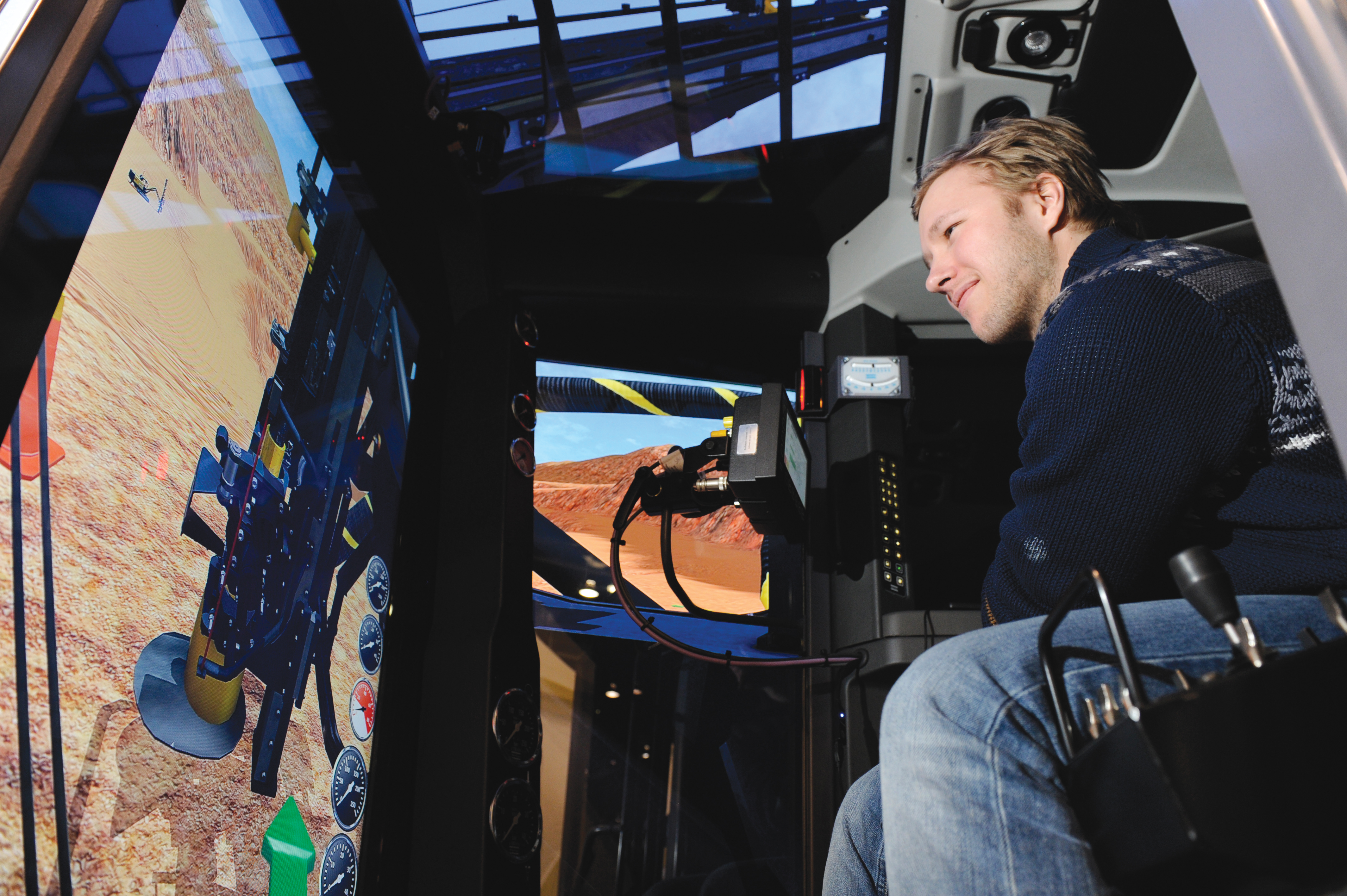
Shortage of skilled operators is a critical problem for the quarrying sector but new simulators could help improve safety and training for new recruits and enhance the technique of skilled operators too
quipment used in modern aggregate production in Europe is worth many thousands of Euros so letting a new operator loose on this in order to train them presents a significant risk. But the risk is not only fi nancial - there are also major health and safety hazards involved in training operators on a new machine, however, new technology is helping to provide a solution.
Simulators are being developed by many major construction equipment manufacturers to help provide a safe learning environment for training on new machines and to also measure skill levels of experienced operators. Development of such solutions is particularly important for the industry given the difficulty of finding skilled operators and the costs involved in training operators from scratch or converting skills gained on one type of equipment onto another.
The growth in the simulator training sector was clear at the
"Manufacturers such as ourselves build the machines and increasingly we are taking on responsibility for maintaining them throughout their working lives," he said. "It's in the operation of equipment that we have the least control.
"By providing in-depth training, we can signifi cantly improve people's skills; once operators - especially new operators - have completed the 11 scenarios, they are fully qualifi ed to operate the real machine," he said. "If someone makes a mistake, it will be quite possible to have the virtual machine roll over." The simulator was developed by Swedish-based Oryx Simulations, which supplies most of Atlas Copco's surface and underground drill rig simulators.
Another Sweden-based company demonstrating the benefi ts of simulator training at the show was Tenstar Simulation. The company's package involves a 3D-simulator with full audio and visual display providing selfinstructive exercises that portray real-life work environments. Simulation packages for construction, transportation, crane operating, timber handling and forklifts are demonstrated in a hands-on and interactive environment.
The construction-related products include Tenstar Digger, an excavator simulator, and Tenstar Loader, designed for wheel loader training. Both systems offer a number of features that take the operator from a basic introduction through to advanced operation of the machines.
According to Southwest Research Institute, which demonstrated a crawler dozer simulator at Conexpo, simulators provide a cost-effective, safe and effi cient way to train new operators in a risk-free environment. "The training simulator features real-world situations, site hazards, safety violations, equipment damage, budget-based scoring and replica machine controls," said the company.
It is clear that with the advancement of technology machine complexity is likely to increase but with the use of simulator training growing in popularity, gaining the skills necessary to make the best use of these advances no longer needs to be costly. If anything, the games console style training is likely to make training easier for the younger generation that have grown up with playing computer games.









